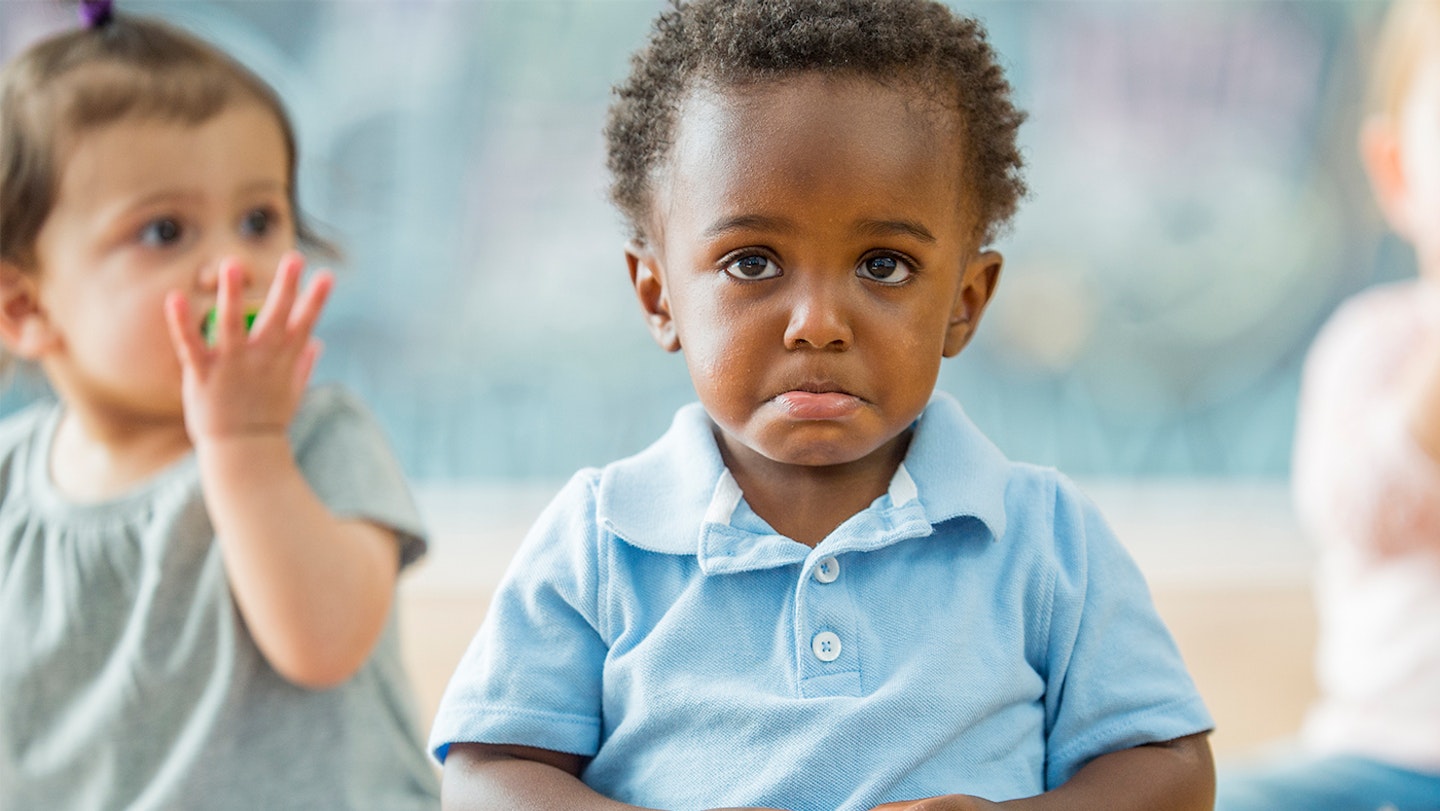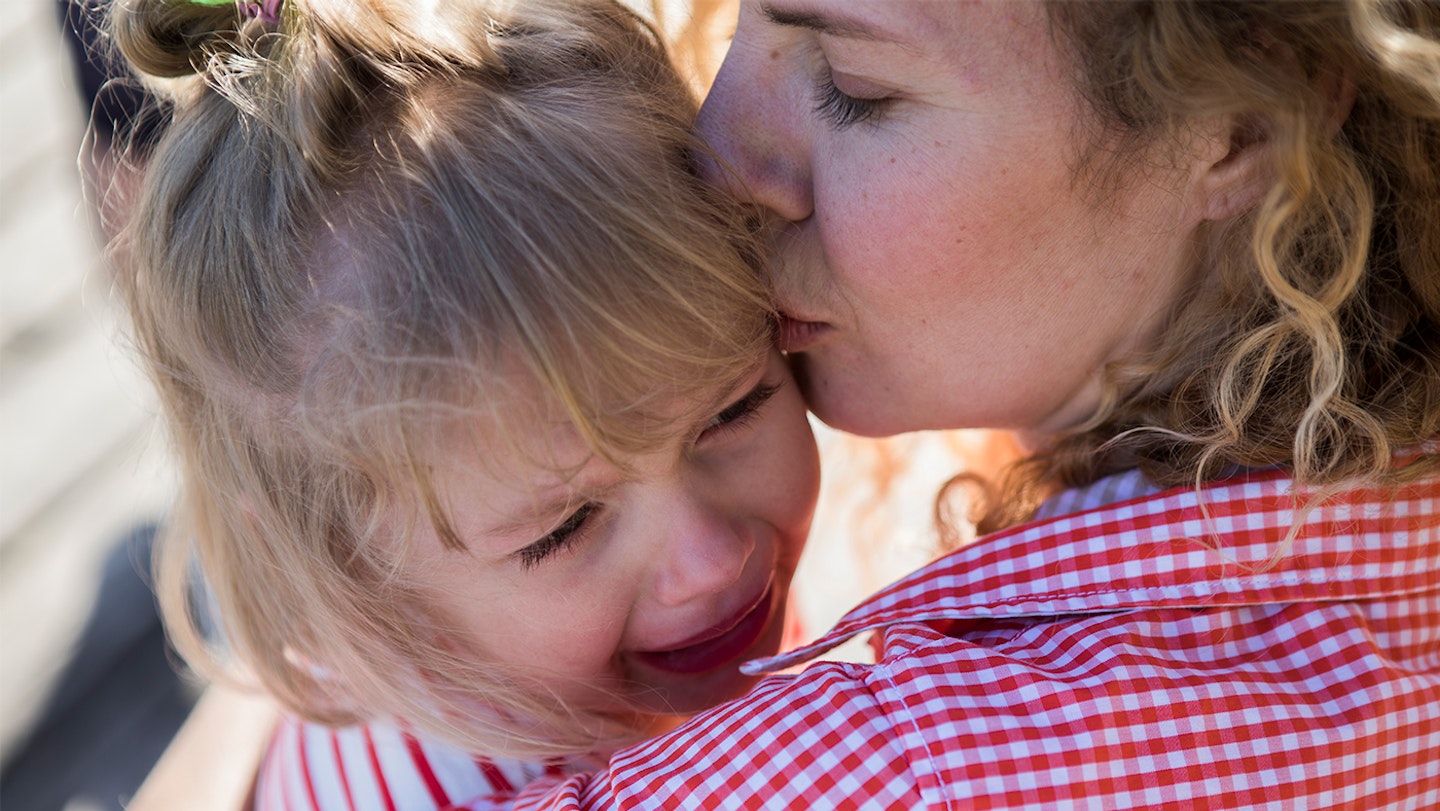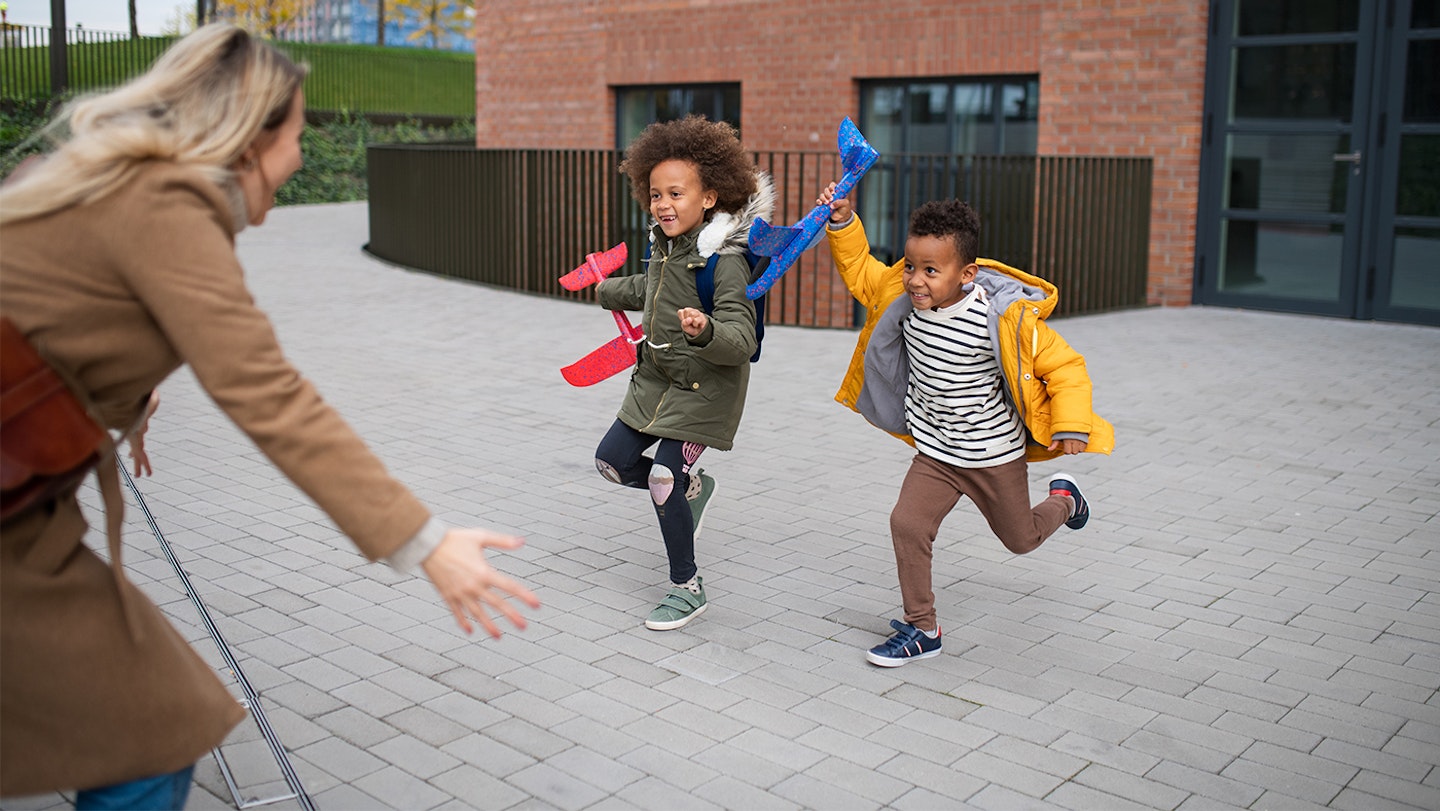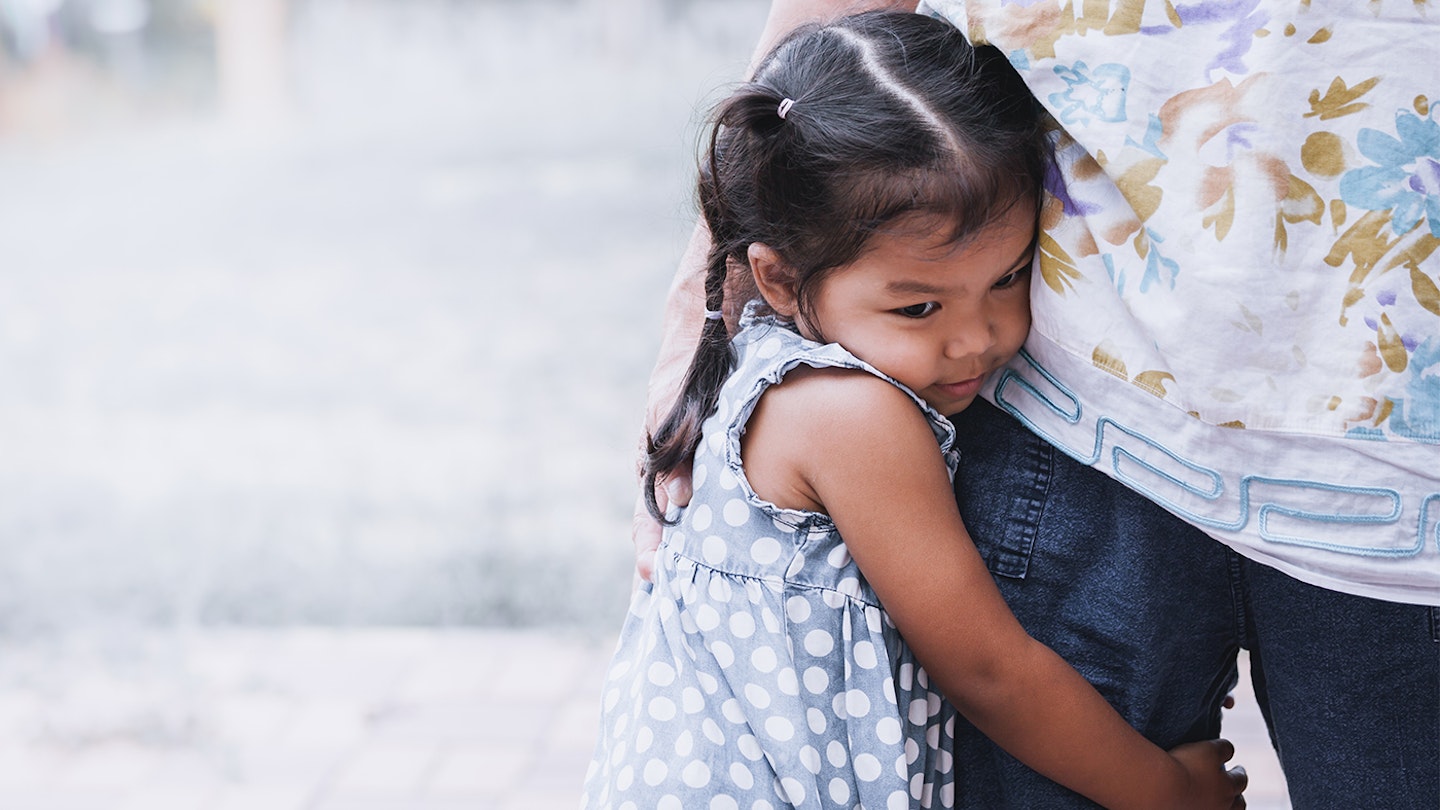You might have already been through the struggles of separation anxiety when your child was a baby, but separation anxiety in toddlers is something that you may also experience later down the line.
"'Mamaaaa! Nooo!' I would hear every time I dropped my son off to nursery and walked away," remembers MOTHER FIT ‘Children’s Emotional Wellbeing’ Expert, Jenna Farrelly. "It was gut-wrenching. I felt horrendously guilty leaving him. I felt that I was doing something wrong, or that there was something wrong with him for feeling this way. I still remember him desperately clinging to me and walking away with tears in my eyes. It was torturous! If only I knew then what I know now... he would’ve coped better but also so would I. It wouldn’t have taken away his emotions, but it would’ve made the whole phase a lot easier for us both."
If you're wondering if your toddler might be experiencing separation anxiety and what you can do about it to help both you and your child, we're here to help.
What is separation anxiety?
Put simply, separation anxiety in toddlers is when you are in a scenario where you are leaving your child for whatever reason, e.g. dropping them at nursery or with Granny and your toddler becomes recurrently distressed due to their fear of being away from you. Separation anxiety can begin around eight months of age and can continue for a few years.
"Separation anxiety in toddlers is a positive sign of something called a secure attachment (a positive and secure relationship with a caregiver_)_. A secure attachment is vital for stable emotional wellbeing as a child develops; so, first of all, remove any guilt or worry that there is something wrong with your toddler or you," reassures Jenna. "It is a normal phase of development and should subside over time. You may find with some children they still have a few tears leaving you even as they are getting older, but as long as it’s not causing significant distress or disruption to school/their development or mental wellbeing, then it is appropriate for them to feel a little sad when being separated from you."

Symptoms of separation anxiety
• Excessive crying when you try to leave them with someone else
• Clinging to you in new environments
• Not letting you out of their sight
• Refusing to go anywhere without you
• Struggling to sleep alone
• Experiencing toddler sleep regression
Causes of separation anxiety in toddlers
There are a few potential reasons that can result in your child experiencing separation anxiety.
Big events
When you're with your toddler at a large gathering with crowds of people, especially those they don't know well, they might be worried about losing you.
Going to sleep
When it's time to sleep at night or for a nap, getting your toddler to sleep in their own bed can prove tricky as this is usually a regular occurrence when they are left alone.
Saying goodbye
Just as you are used to being with your toddler 24/7, they are used to the security of being with you and as saying goodbye to you threatens this, it can leave them feeling uneasy.
Helping your toddler
Practice separations
Start small - peekaboo is a great way of teaching your baby that you can disappear and then return. Once they’ve learnt this, you could trial some separations. "Start in your own home - get someone to come round for 15-30 minutes and leave them with them," suggests Jenna. "Slowly build up the time you leave them for and change the place, such as leaving them at a relative’s house or the park. If the first time they are ever being left is at a strange place such as nursery then it is likely to make the separation anxiety worse."
Always say bye!
Don’t run away thinking that’s best. It can make them clingier because they can’t predict when you are leaving, so they just want you at all times. "Saying bye enthusiastically, giving eye contact, providing reassuring touch and a big smile will comfort them and develop patterns that they can rely on," says Jenna.
Speak about what you will do later
E.g. 'I can’t wait to see you later; shall we go to the park/Read your favourite book/Play with your toys?' Or discuss what they’ll be doing at nursery/childminder/with relations… 'Could you draw me a picture today? I’d love to have a new picture for the fridge!'.

Recognise, respond and relate to the emotion
Acknowledge how your child is feeling. Try saying: 'I can see you’re feeling scared and worried, it’s ok to feel scared'.
"Give lots of eye contact and touch because this increases Oxytocin (our bonding hormone) which decreases their Cortisol levels (stress hormone)," Jenna explains. 'I miss you when I’m not with you/I used to cry when I was dropped off too. Let’s have a big cuddle until you’re ready to go in'. You can also add things like 'Isn’t it lovely that we love each other so much we miss each other when we’re not together? We are so lucky'. "This puts a positive spin on the sadness/fear," says Jenna.
Regulate your own emotions
Take five long deep breaths to regulate your physiological system so they can sense you are calm. "Children pick up on our own emotions, I’m not saying you’re not allowed to feel however you are feeling - but if you can try to regulate yourself first, they are more likely to mimic what you are showing," says Jenna. If you are having issues with regulating your own emotions, it may be worth discussing this with someone - a friend, your partner or a GP - if things aren’t settling for yourself.

Make a big fuss when you return
Give huge smiles and waves, congratulate them for being brave and talk about both of your emotions openly. 'I really missed you, but I am so proud that even though you were scared, you still stayed and enjoyed your time without me'.
How long will separation anxiety last?
Most toddlers will outgrow separation anxiety, but if you are worried that their behaviour/symptoms aren’t easing, you can contact your health visiting team or your GP.
When do I need to worry?
While separation anxiety in toddlers is normal, beyond toddlerhood, some children may develop signs of Separation Anxiety Disorder.
"Separation anxiety in toddlers can sometimes develop into something called Separation Anxiety Disorder which is a more extreme form of what has been discussed," says Jenna. "Signs that you may need further support with Separation Anxiety Disorder include prolonged and excessive crying, bad nightmares or worries that a parent will die, physical symptoms such as sickness and headaches when the parent leaves and refusal to go to school."
If this is something you are concerned about, you should contact your GP.
